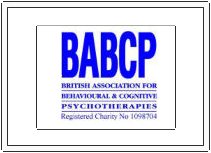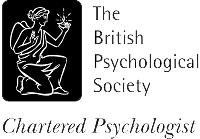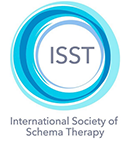Cognitive Behavioural Therapy (CBT)
Cognitive Behavioural Therapy (CBT) is a time limited and most often a short to medium term therapeutic approach (usually between 6-20 sessions) that helps you identify and challenge patterns of thinking and behaving that have unhelpful or distressing consequences. The origins of these patterns are explored and acknowledged but working through early life experiences is not the main focus of this approach.
CBT places its emphasis on working in the ‘here and now’. It involves identifying patterns of thinking and behaving that keep problems going (we call these maintenance factors) and then helping you gain insight and skills to challenge these unhelpful patterns and develop alternative, more useful ways of responding that are compatible with your life goals.
How individuals respond to CBT has been the subject of extensive research including the providers of national guidance NICE (National Institute for Health and Care Excellence). NICE recommends CBT as a good treatment for a number of presentations:
Depression, generalised anxiety disorders (GAD), obsessive compulsive disorder (OCD), social phobia, panic disorder, post-traumatic stress disorder (PTSD), health anxiety, body dysmorphic disorder (BDD), chronic fatigue syndrome (CFS), bulimia nervosa (BN), bipolar affective disorder.




